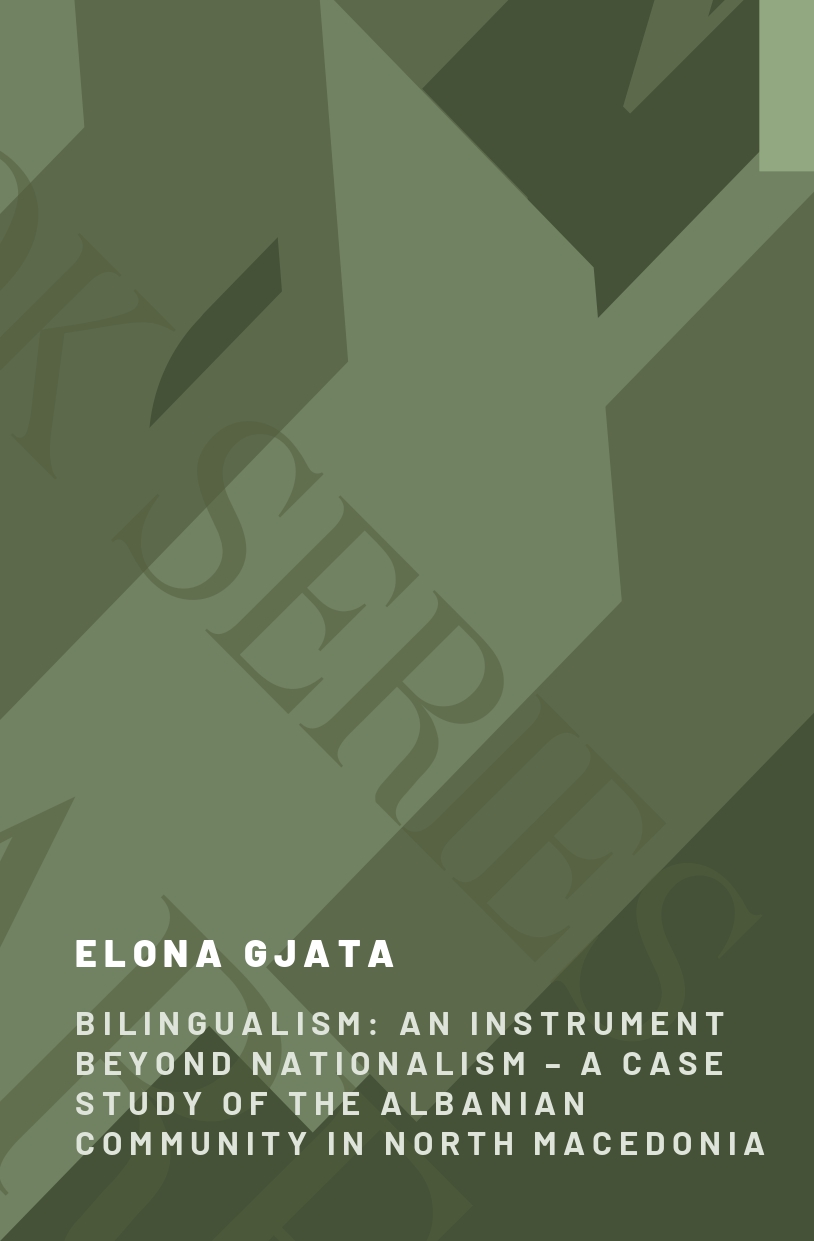
Bilingualism: An Instrument Beyond Nationalism – A Case Study of the Albanian Community in North Macedonia
SDGs: SDG 16 Author(s): Elona Gjata Thematic Area: Active Citizenship and Democratic Institutions, Education, Social Criticism Published: 2024 ISBN: 978-86-82324-73-7 Pages: 24 Language: English Publisher: Institute for Philosophy and Social Theory, University of Belgrade Tags: book | More DetailsThis study examines bilingualism as a mechanism for transcending nationalism within multiethnic societies, with a particular focus on the Albanian community in North Macedonia. Through an extensive case study involving fieldwork in Skopje and Tetovo, the research investigates the relationship between language and nationalism among the younger Albanian population and their interactions with the Macedonian language. It also explores the socio-economic and political implications of bilingualism in key public spaces, such as educational institutions and marketplaces, providing insight into how language functions as both a tool for social integration and a marker of ethnic distinction.
The findings suggest that bilingualism among the Albanian community is influenced by various factors, including educational policies, migration trends, and socio-economic opportunities. While younger generations demonstrate varying levels of Macedonian proficiency, their linguistic choices often reflect broader attitudes towards national identity, interethnic relations, and mobility aspirations. Additionally, the study identifies a gendered aspect to bilingualism, where men display greater multilingual capacities due to economic participation and migration patterns, while women tend to maintain linguistic boundaries within domestic and cultural spheres.
This research contributes to the discourse on language policy, national identity, and social cohesion in the Western Balkans, offering comparative insights for other multiethnic societies navigating similar challenges. In line with European integration efforts and the Sustainable Development Goals (SDGs), particularly SDG 4 on inclusive education and SDG 16 on peace, justice, and strong institutions, the study underscores the role of language policies in fostering inclusive and democratic societies. The implications extend to regional governance, EU accession frameworks, and international development strategies, highlighting bilingualism as both a challenge and an opportunity for institutional and societal transformation.
Back
